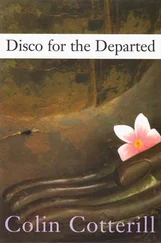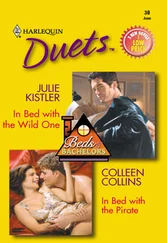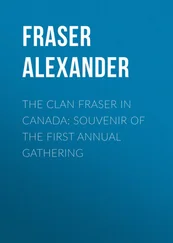Colm Tóibín - The Blackwater Lightship
Здесь есть возможность читать онлайн «Colm Tóibín - The Blackwater Lightship» весь текст электронной книги совершенно бесплатно (целиком полную версию без сокращений). В некоторых случаях можно слушать аудио, скачать через торрент в формате fb2 и присутствует краткое содержание. Жанр: Современная проза, на английском языке. Описание произведения, (предисловие) а так же отзывы посетителей доступны на портале библиотеки ЛибКат.
- Название:The Blackwater Lightship
- Автор:
- Жанр:
- Год:неизвестен
- ISBN:нет данных
- Рейтинг книги:3 / 5. Голосов: 1
-
Избранное:Добавить в избранное
- Отзывы:
-
Ваша оценка:
- 60
- 1
- 2
- 3
- 4
- 5
The Blackwater Lightship: краткое содержание, описание и аннотация
Предлагаем к чтению аннотацию, описание, краткое содержание или предисловие (зависит от того, что написал сам автор книги «The Blackwater Lightship»). Если вы не нашли необходимую информацию о книге — напишите в комментариях, мы постараемся отыскать её.
The Blackwater Lightship — читать онлайн бесплатно полную книгу (весь текст) целиком
Ниже представлен текст книги, разбитый по страницам. Система сохранения места последней прочитанной страницы, позволяет с удобством читать онлайн бесплатно книгу «The Blackwater Lightship», без необходимости каждый раз заново искать на чём Вы остановились. Поставьте закладку, и сможете в любой момент перейти на страницу, на которой закончили чтение.
Интервал:
Закладка:
When she had given Manus his cornflakes and cold milk and left Hugh to fend for himself – Hugh was more at home in the kitchen than she was \a151 she went out to the line to hang a few dishcloths she had washed. She made a note in her head to find out if there was a good book about bringing up boys, which might make things easier to handle. Once again, as she stood there, the sky darkened. She walked down to the bottom of the garden to take in a deckchair which Hugh must have left out overnight.
She remembered once, perhaps a year earlier, when her brother was in the house and witnessed the boys going to bed. Hugh was in charge and both Cathal and Manus, but especially Manus, did everything to be allowed to stay up, such as clinging to their mother and refusing to do anything their father said. When the house was all quiet and the boys fast asleep, Declan said it was proof, if they needed proof, that boys wanted to sleep with their mother and kill their father.
'They just wanted to stay up late,' Hugh said. 'It just happened that I was in charge.'
'Did you want to sleep with your mother and kill your father?' Helen asked Declan.
'No, no,' he laughed, 'gay boys want the opposite, or at least eventually they do.'
'Sleep with your father?' Hugh asked. His tone was earnest, dead serious.
'Yeah, and have a baby, Hugh,' Declan said dryly.
'I still want to kill my mother,' Helen said. 'Not every day, but most days. I cannot imagine anyone wanting to sleep with her.'
She had not forgotten the exchange: Hugh's uneasiness, his innocence, his attempts to suggest to her when Declan had left that talking about killing your parents, or sleeping with them, even in jest, was a sort of blasphemy. She was careful not to seem too impatient with him, aware that she and Declan could without any effort join forces and make Hugh feel that they were laughing at him. Maybe that is what brothers are for, she thought as she walked back into the kitchen, perhaps even now Cathal and Manus are involved in unspoken conspiracies.
'The forecast is for showers,' she said to Hugh, 'and I've worked it out. If it rains, all the tables will fit in here and in the front room and we can put all the drinks in the hall. But we don't have to decide until later.'
It was the end of June, Hugh's end of term; the next morning he would take the boys to Donegal. Tonight, he had invited the teachers from his all-Irish school to celebrate the school's first year in existence, and other friends – musicians, Irish-speakers. Helen had made him invite all the neighbours, including the Indian doctor and his wife and their children who lived at the top of the road.
'No one can complain about the noise if they've just been fed in the house,' she said.
'Half of them looked at me like I was collecting taxes. I bet that guard in the corner house is from Offaly. He has a big, thick accent.'
'Who is that friend of yours who sings "The Rocks of Bawn"? The guard'll have a big, thick accent when he hears him.'
'Mick Joyce. He's loud, all right. Is your brother coming?'
'I haven't asked him,' she said. 'He wouldn't mix. I don't think he likes "The Rocks of Bawn".'
'Has he fallen out with us?'
'He's busy. He's doing research full-time.'
'He has plenty of time so.' Hugh laughed.
'My mother says he's in the laboratory day and night.'
'Is your mother coming?' he laughed.
'Imagine what she'd say about wasting all this money!'
'She'd be great on the door, though,' Hugh said.
Hugh spoke Irish to the boys, to his mother and his brothers and sisters, and to at least half of his friends. He insisted that Helen understood more than she pretended to understand, but it was not true. She found his Donegal accent in Irish too difficult, and she made out very little of what he said. Tonight, she knew, she would be irritated by the two or three who would continue to speak to her in Irish, indifferent to the fact that she could not follow, but it was an irritation which would fade easily.
There would be no friends of hers at the party, nobody from the comprehensive school of which she was principal – she was still the youngest principal in the country -nobody from home, nobody from her schooldays or college days. She had one or two women she knew and liked and saw sometimes, but no close friends.
She had given up a long-cherished belief that she was self-contained, or happiest when alone. She could still shut her eyes and bite her lip at how unexpected it was, this life she had made. Nonetheless, she wanted three or four, maybe more, days alone here now after the party, to sit in the garden or an old armchair in the kitchen and read the novels she had saved in the winter, and do nothing else except go to a meeting in the Department of Education, interview prospective teachers and move around the house knowing that, unless there was an emergency, no one would call her or want her immediate attention. But it was important for her to know too that Hugh and the boys were just away for a short while, she would see them soon.
Tomorrow morning, then, Hugh would take the boys to Donegal in the car and she would follow in a while, catch the train to Sligo or the bus to Donegal town, and even now she could imagine Hugh there to meet her, recognising when he saw her how much she feared her own passionate attachment to him, how much she would hold back for a while. After a lot of difficulty, he had learned, as much as he could, to trust her, even though she knew it was hard sometimes.
When the janitor from Hugh's school, Frank Mulvey, and his son came in a van with the tables and chairs, she had to restrain herself from telling them where to put everything; she wondered, as she watched them, at how blindly they moved, planning nothing, moving forward without direction. She smiled at herself minding so much about this.
She decided to go to the supermarket to buy the food and the beer. Hugh had already collected the wine and the glasses. She watched from the kitchen window as the boys played aeroplanes in the back garden, circling each other, dipping and diving, their arms outstretched as wings. She called Manus and when he ignored her she called again. He moved reluctantly towards her.
'I want you to come with me to the supermarket,' she said.
'Is Cathal going?'
'No, just you.'
'Why just me? Why can't Cathal go?'
'Come on quickly,' she said.
'I don't want to go,' he said.
'Come on, wash your hands, we're in a hurry.'
'I don't want to go.'
By this time, Cathal had approached and was observing them both.
'Cathal is going to help your daddy with the tables and chairs,' she said.
'I want to do that,' Manus said.
'Why do you need me?'
'To mind the trolley when I'm paying at the checkout.'
'It's boring,' he said.
'Do you think we should get large cans or small cans of beer?' Again, she was using an adult tone.
'It's boring,' he repeated.
When she got back, she saw that the tables and chairs were set up in the garden. She checked one of the kitchen drawers for plastic tablecloths. The boys were once more playing aeroplanes.
'If it rains, we'll move everything in,' Hugh said as they both surveyed the garden.
At nine o'clock the first guests, two men and a woman, arrived carrying six-packs of Guinness and a bottle of red wine. The woman was carrying a fiddle case.
'Are we the first?' one of the men, tall with spectacles and curly hair, said. They seemed uneasy, as though they were half tempted to turn and go. Helen didn't know them and didn't think she had seen them before. Hugh introduced them to her.
'Sit down, sit down, we'll get you a drink,' Hugh said.
They sat in the kitchen and looked out at the tables and the long garden. They said nothing. The two boys came in and examined them and went out again.
Читать дальшеИнтервал:
Закладка:
Похожие книги на «The Blackwater Lightship»
Представляем Вашему вниманию похожие книги на «The Blackwater Lightship» списком для выбора. Мы отобрали схожую по названию и смыслу литературу в надежде предоставить читателям больше вариантов отыскать новые, интересные, ещё непрочитанные произведения.
Обсуждение, отзывы о книге «The Blackwater Lightship» и просто собственные мнения читателей. Оставьте ваши комментарии, напишите, что Вы думаете о произведении, его смысле или главных героях. Укажите что конкретно понравилось, а что нет, и почему Вы так считаете.












